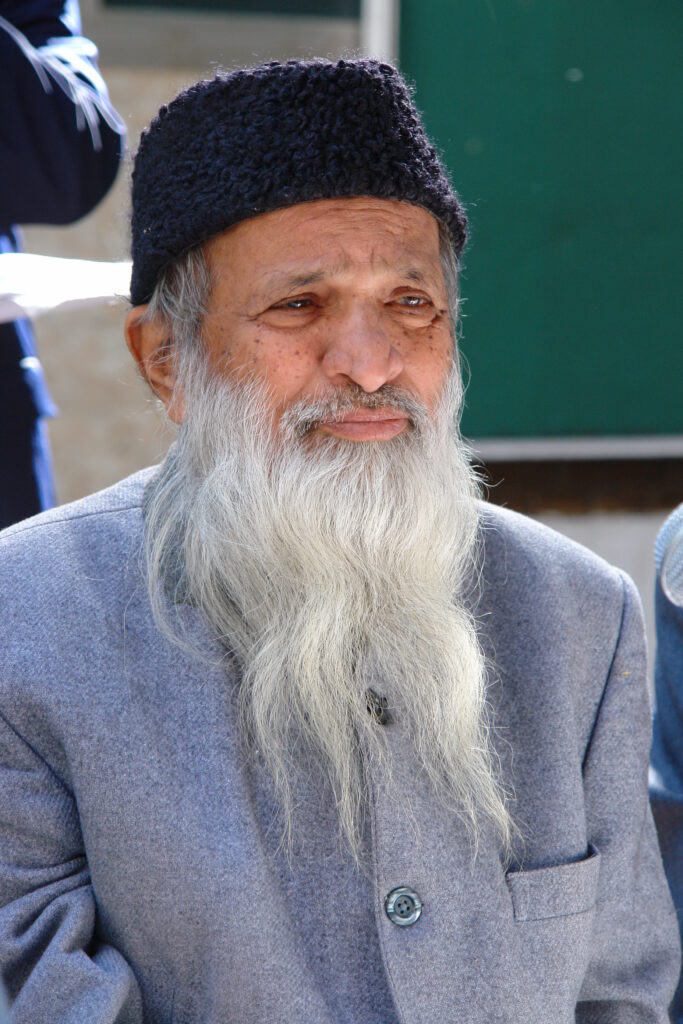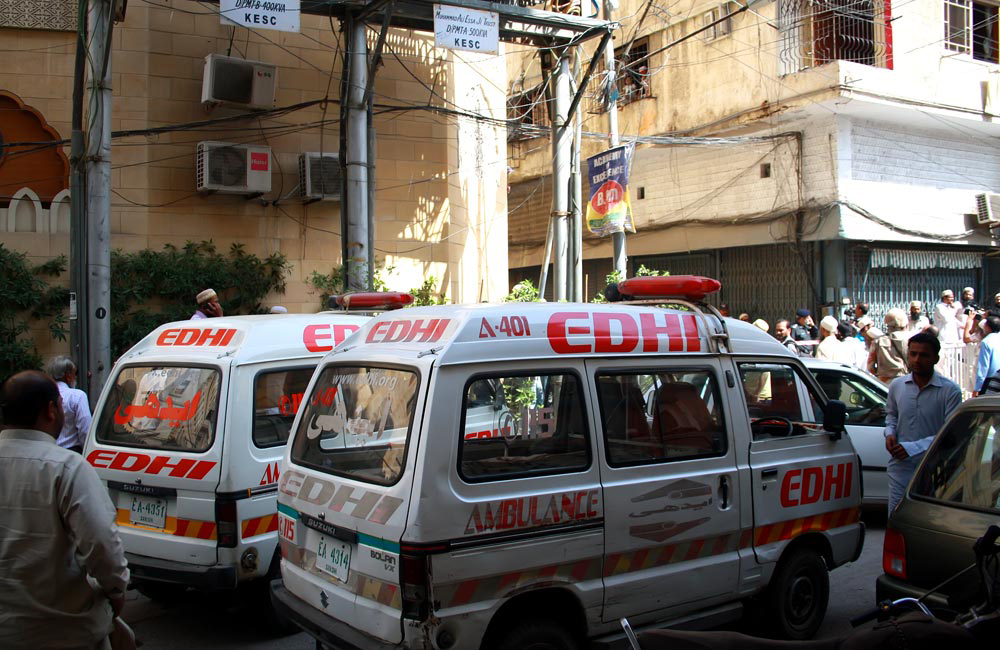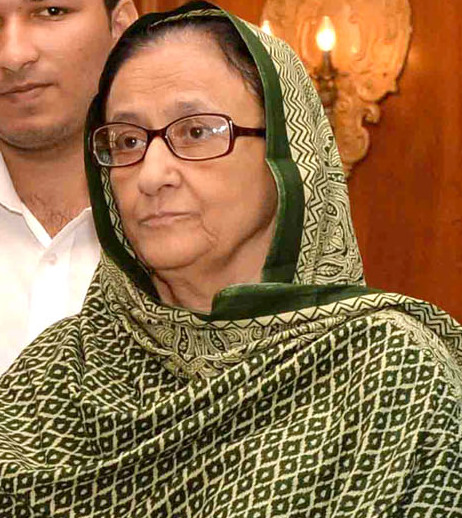Introduction: Humanity’s Greatest Son
When history writes about kings, rulers, and billionaires, their stories are often measured by their power, wealth, and empires. But when it writes about Abdul Sattar Edhi, it speaks of something far greater: a man who owned nothing, lived with simplicity, and yet became the guardian of humanity.
Known worldwide as the “Angel of Mercy,” Edhi devoted his entire life to helping those whom society had abandoned—the poor, the sick, the homeless, the orphans, and even the dead who had no one left to bury them.
He was a man who gave everything but kept nothing.
This is the story of Abdul Sattar Edhi—a story of compassion, sacrifice, and a legacy that continues to inspire the world.

Early Life: The Seeds of Compassion
Abdul Sattar Edhi was born on January 1, 1928, in Bantva, Gujarat (India) into a humble Memon family. His childhood was shaped by two things: poverty and compassion.
His mother was his greatest teacher. She constantly encouraged him to help the poor and share whatever little they had. If a beggar came to the door, she would always give food. She would tell young Abdul:
“Always give two paisa—one for yourself, one for someone who has nothing.”
But tragedy came early. His mother developed paralysis and later mental illness. Edhi, still a teenager, struggled to take care of her, feeling helpless at the lack of medical facilities for the poor. This experience carved a wound in his heart, one that transformed into a lifelong mission: no one should ever suffer alone again.
Pain became his teacher. Compassion became his destiny.
Migration to Pakistan: A Land of Need
In 1947, when the Partition of India created Pakistan, Edhi and his family migrated to Karachi. Like millions of other refugees, they arrived with nothing. Karachi was chaotic—filled with disease, poverty, hunger, and unburied bodies lying on the streets.
At just 19 years old, Edhi looked around and saw despair everywhere. But unlike others, who tried to secure their survival, Edhi decided to become a servant of the suffering.
He did not wait for the government or the wealthy. He decided that one man could make the difference.
The Beginning of a Revolution
With a small shop as his only income, Edhi began saving money to help others. In 1951, he opened a free dispensary where the poor could get medicines without cost. Soon, he bought a second-hand van, painted it white, and turned it into his first ambulance.
That van became a symbol. Day and night, Edhi himself drove it through the streets of Karachi, picking up the sick, rescuing the injured, and even collecting unclaimed bodies for burial.
From that single van, the Edhi Foundation grew into:
- The world’s largest volunteer ambulance service (over 1,800 ambulances).
- Free hospitals and dispensaries across Pakistan.
- Shelters for women and safe homes for the homeless.
- Orphanages housing more than 20,000 children.
- Baby cradles placed outside centers to save abandoned infants.
- Morgues for unclaimed bodies.
What started with 20 rupees became the greatest humanitarian network in the Muslim world.

Simplicity: His Secret Power
Abdul Sattar Edhi’s greatness was not only in what he built but also in how he lived. He chose a life of extreme simplicity:
- He owned only two sets of clothes.
- He lived in a small, modest apartment.
- He ate simple meals, often with the poor.
- His office was a desk in a crowded, noisy hall.
He refused to take money for himself—even from the millions in donations his foundation received. He never traveled first class, never drove luxury cars, and never built a mansion.
“Luxury robs you of humanity. I want nothing for myself.”
He lived among the poor so he could feel their pain.
Family Life: A Partnership of Compassion
In 1965, Edhi married Bilquis Edhi, a nurse who worked with him. Their marriage was not one of wealth or glamour—it was a partnership in service. Together, they built orphanages, maternity homes, and shelters for abandoned children.
Bilquis was known as the “Mother of Pakistan,” while Edhi was the “Father.” Together, they saved thousands of children, including those left in cradles outside Edhi centers.
Their love story was written not in words, but in acts of mercy.

Challenges, Criticism, and Hatred
Despite his selfless service, Edhi was not free from criticism.
- Religious extremists accused him of promoting “un-Islamic” ideas because he adopted unwanted children.
- Politicians disliked him because he refused corruption and government control.
- Criminals robbed his centers more than once.
But his response was always patient. He once said:
“My religion is humanity, which is the basis of every religion.”
Even when hated, he answered with kindness.
Humanitarian Stories That Define Him
Edhi’s life was filled with countless moments that revealed his heart:
- Baby Cradles: To stop infanticide, he placed cradles outside Edhi centers with a sign: “Do not kill your baby—leave them here.” Thousands of lives were saved.
- Unclaimed Dead: He personally washed and buried unclaimed bodies, saying: “Even the dead deserve dignity.”
- Ambulance Rescues: Many times, he drove ambulances himself through riots and gunfire, never fearing for his life.
- Helping Outside Pakistan: The Edhi Foundation provided relief to victims of disasters in Africa, the Middle East, and even helped Americans after Hurricane Katrina.
His humanity knew no borders.
Global Recognition
Though he never sought fame, the world could not ignore him:
- Ramon Magsaysay Award (1986)
- Lenin Peace Prize (1988)
- Nishan-e-Imtiaz (1989)
- Gandhi Peace Prize (2007)
- UNESCO Peace Award (2011)
But Edhi always said:
“Awards don’t feed the hungry. Keep your medals—I need funds to serve people.”
Recognition was never his goal—service was.
Philosophy: Religion of Humanity
Edhi was deeply spiritual, but his faith was broader than any sect. He believed humanity itself was the highest religion.
He once said:
“Empty words and long praises do not impress God. Show Him your faith by your deeds.”
This philosophy made him both admired and controversial—but it also made him eternal.
He taught that compassion is the true language of God.
The Final Days
In his last years, Abdul Sattar Edhi suffered from kidney failure. He was offered treatment abroad, but he refused, saying he would never use donations for himself.
Even on his hospital bed, he continued to guide his foundation. He registered as an organ donor, and after his death, his corneas were donated, giving two people the gift of sight.
On July 8, 2016, Pakistan wept. His funeral was one of the largest in the nation’s history, attended by millions. Soldiers carried his coffin, and ordinary people cried as if they had lost a father.
In death, as in life, Edhi belonged to the people.
Legacy: The Eternal Angel of Mercy
Today, the Edhi Foundation remains Pakistan’s largest welfare network. His children continue the mission. His ambulances still race through the streets. His cradles still save infants. His shelters still house the homeless.
But his greatest legacy is not his foundation—it is the spirit of compassion he left behind.
Statues may break, rulers may be forgotten, but Abdul Sattar Edhi’s name will remain immortal.
Lessons for the World
What can we learn from Edhi?
- That one person can change the destiny of millions.
- That wealth and power mean nothing compared to compassion.
- That simplicity is the path to greatness.
- That true religion is humanity.
Edhi’s life is proof that greatness is not what you own, but what you give.
Conclusion
Abdul Sattar Edhi gave everything but kept nothing. He built the largest humanitarian network in the world, yet died owning only two sets of clothes. He was proof that the richest man is not the one with wealth, but the one who enriches lives.
In a divided world, Abdul Sattar Edhi remains a shining light—a reminder that humanity must always come first.
All images used in this article are sourced from Wikimedia Commons / Wikipedia under the Creative Commons CC BY-SA 3.0 License.